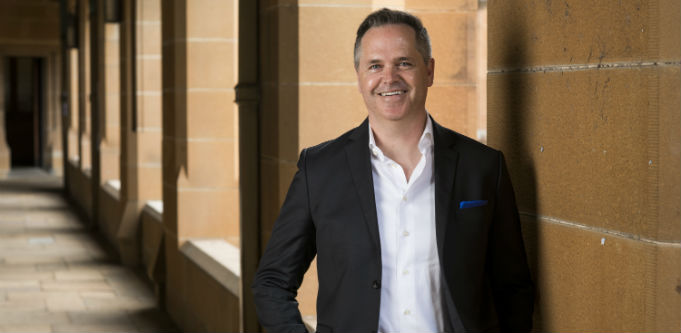
Tony Ward, Dropbox's country head of Australia and New Zealand. Source: Supplied.
Dropbox is moving towards a more collaborative ethos, and startups should follow suit, according to the file hosting giant’s country head for Australia and New Zealand, Tony Ward.
Speaking to StartupSmart, Ward says if startups work together, and with other businesses and governments, they have an opportunity to make a real impact on global issues.
Such collaboration and information sharing are one of the main values of Dropbox, he says, focusing on “surfacing” information when a user needs it.
Currently, he said, people can spend up to two-thirds of their time doing “work about work” – finding the information they need to do their jobs, rather than actually doing them.
To change this dynamic, businesses should focus on “moving from digital disaster to digital harmony”, he said.
“If we could do that, people would be excited to go to work on Monday morning.”
Founded in 2007 by Drew Houston and Arash Ferdowsi, Dropbox now has more than 500 million users across 180 countries, and offices in 12 countries. In March 2018, the company listed on the Nasdaq Stock Exchange.
Three steps to success
The secret to Dropbox’s success, according to Ward, is three-fold. First, it’s simple and easy to use.
“We’re consumer-driven, user-led and easy. Nobody has to be trained,” he says.
Second, the platform is very open, compatible for sharing files using “whatever software you need to do your job”.
Finally, Ward says, it’s “super-secure”, adding that combining that security with the simplicity is “very difficult to do”.
But, in order for new startups to be successful, he says: “The first thing you want to do is actually solve a problem.”
There is still a lot of room for disruption in many sectors, Ward says, including the likes of education, construction and media. There are “lots of problems that need solving, that will benefit society”.
Dropbox was founded when Houston left his portable hard drive at work, and became frustrated that he couldn’t access his work remotely.
“Successful startups, they start with an idea,” Tony says. If there’s a problem that’s frustrating to one person, chances are there will be others with the same frustrations.
Founders should consider “how [a particular thing] is done today, and how it can be done differently”, Ward says.
“That is how we move forward.”
He adds that startups should prioritise creating a prototype quickly, with a focus on the users, in order to make sure they “create a product that people love using”.
He says: “If people love your product and you feel really great about what you do, your job satisfaction is going to be high, and you’ll go above and beyond.”
Startups can’t fix global problems alone
However, he adds that in order to solve big global problems – problems like cancer and climate change – “one little startup is not going to solve any problem by themselves”.
Tackling these kinds of issues requires “hundreds of thousands of people collaborating”, with startups and entrepreneurs working together, and with the public and private sectors, to enable researchers to do the work that changes the world.
Dropbox, for example, has “moved from the world of file syncing and storage to a world of collaboration”, Ward says.
For professional people including doctors, lawyers and architects, “it’s core to what they do in their business”.
One Dropbox client, he says, is a group literally working on curing cancer, using technology to share information quickly, which in turn allows them to innovate and move forward more quickly.
Ward says: “We’re not actually curing cancer. We’re the people allowing the people curing cancer to do that.”
Ward is speaking at the Disruptive Innovation 2018 in Sydney in August, where he says he expects collaboration to emerge as a particular theme.
He says: “I’m looking forward to hearing entrepreneurs talking about what the opportunities are for startups … hearing about the future of work – or the work of the future.”


COMMENTS
SmartCompany is committed to hosting lively discussions. Help us keep the conversation useful, interesting and welcoming. We aim to publish comments quickly in the interest of promoting robust conversation, but we’re a small team and we deploy filters to protect against legal risk. Occasionally your comment may be held up while it is being reviewed, but we’re working as fast as we can to keep the conversation rolling.
The SmartCompany comment section is members-only content. Please subscribe to leave a comment.
The SmartCompany comment section is members-only content. Please login to leave a comment.